Directed by Yuval Adler, ‘Sympathy For The Devil’ is a psychological thriller film starring Nicolas Cage and Joel Kinnaman that revolves around a tense hostage situation on the wheels. On the night that his wife is giving birth at the hospital, David Chamberlain finds himself held at gunpoint and forced to drive around by a scarlet-headed manic stranger. As the night progresses, the situation turns deadly for many and brings up a ghostly past.
The film, packed with suspense, follows a gripping narrative full of secrets that build gradually alongside the tension. If you’re curious to know what this encounter unveils about the eclectic passenger and how it ends for David, here is everything you need to know about the ending of ‘Sympathy For The Devil.’ SPOILERS AHEAD!
Sympathy For The Devil Plot Synopsis
On the night that Maggie goes into labor, her husband, David, drives their young son to his grandma’s before returning to the hospital to be with his wife. Since the couple previously lost their firstborn during childbirth, the night brings added anxiety for them. However, at the hospital’s parking lot, David meets an unexpected fate when a man clad in a scarlet blazer and a crazed disposition enters his car with a gun.
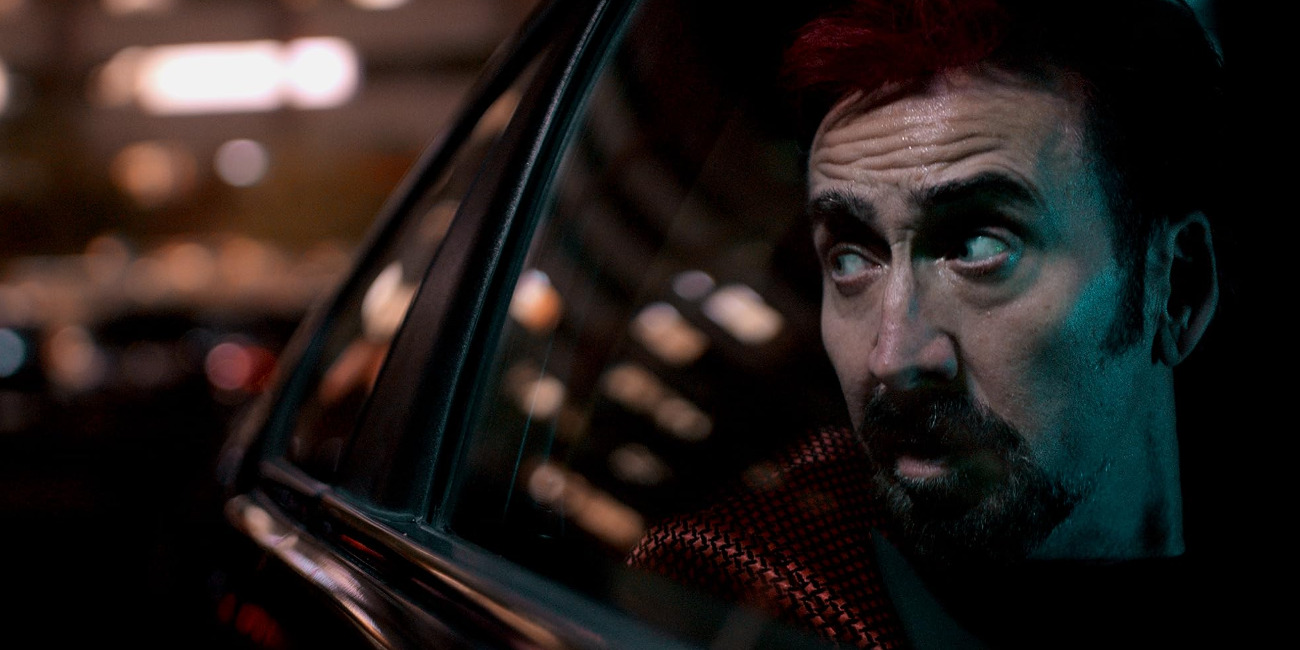
The stranger forces David to drive away from the hospital, uncaring of his wife’s plight, and in fact, gets annoyed with David when he tries to bring it up. During the car ride, David tries to escape several times by discreetly signaling for help at a gas station and empathizing with the stranger by sharing his own sob story, but to no avail. Eventually, he tries to take a bolder approach by speeding past a cop car to gain his attention.
Still, when the cop approaches the pair, the Passenger starts a petty argument with him and eventually loses his temper, shooting the lawman. The incident frustrates David, and he refuses to drive any longer. Nonetheless, his conviction doesn’t last much longer in the face of a bullet to the head. As the pair continues their drive to Boulder City, David calls the Passenger out on his fake motive of a cancer-ridden mother and demands real answers.
The Passenger, clearly one for showmanship, maintains that he would hate to spoil the ending this fast. In turn, David’s frustration mounts, and he brashly attacks the Passenger and throws himself out of the moving car, hoping the following car crash will allow him the time to escape the latter. His plan is foiled again when a distressed Maggie calls, giving the stranger the perfect opportunity to learn about her whereabouts.
As a result, David, hiding by the side of the road, has to willingly turn himself over to the Passenger when he threatens to hurt David’s family. Yet again, David— ruffed up and bleeding— finds himself between the steering wheel and a gun. Shortly after, the Passenger makes David stop by a roadhouse diner on a whim.
The Passenger attempts to maintain a low-key profile at the deserted diner, interacting pleasantly with the waitress and putting in their orders. He also begins to answer some of David’s questions regarding his motives through vague stories about a bookkeeper. Soon, however, he loses his temper again when David interrupts his monologue. Following the outburst, the Passenger attacks David and handcuffs him to the booth. Finally, the Passenger holds the entire diner hostage. In the end, David finds himself at an impossible crossroads when the Passenger offers him a choice between revealing his true identity or watching him lay waste to the entire diner, populated with two staff members and three patrons, including a mother and her kid.
Sympathy For The Devil Ending: Who is The Passenger?
Although the Passenger spends the entire film accusing David of being someone he’s not, demanding David reveal his true identity, the former never indulges his own identity, to begin with. His character is surrounded by Devillish imagery and references, with his instant association with the red color, off-the-rails personality, and tendency to quote the bible. Not to mention his mysterious associate “Mikey,” likely a nickname for someone named Michael.
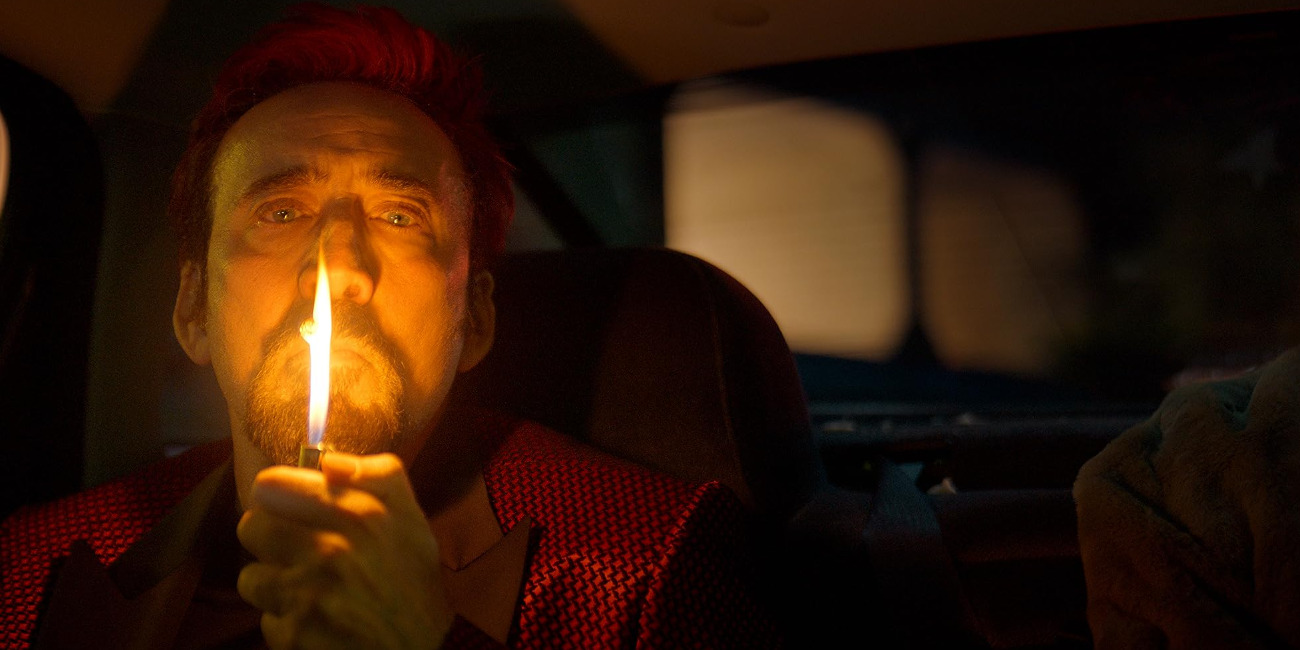
Still, the Passenger’s disconnect from the biblical entity becomes clear once he enters the diner with David and tells him a story about a bookkeeper who used to work for Jacob Sullivan. From the story, we can gather that the bookkeeper used to work for some underworld boss, Jacob Sullivan, and looked after his finances. However, one of Sullivan’s gang members tried to deceive him by bribing the bookkeeper into helping him screw over Sullivan.
The bookkeeper, a devout catholic and a family man, likely weary of trouble, shared this information with Sullivan. As a result, the gang leader killed the disloyal member in the bookkeeper’s house. However, the bookkeeper’s wife, who wasn’t supposed to be home, witnessed the complete ordeal by accident. Due to the same, she started unraveling with alcohol and drug addiction, unable to move on from the violent incident.
As such, the bookkeeper’s wife soon becomes a liability to Sullivan, given her habit of retelling the gruesome and bloodied tale to anyone who would listen. As a result, Sullivan sent over a deadly hitman, James Levine, who killed the bookkeeper’s wife and young daughter.
The Passenger is the bookkeeper from the story, who continues to live out his life after the death of his family. Nevertheless, the past continues to haunt him endlessly, contributing to his manic state. The Bookkeeper, now the Passenger within the film’s narrative, has little regard for the consequences of his actions since he’s only living for vengeance.
Why Did The Passenger Take David Hostage?
Since the story’s base premise hinges upon the Passenger’s need to take David, hostage, his motive forms the most significant part of the intrigue and suspense surrounding the plot. Although the Passenger outright refuses to divulge his motivations at first, as his identity comes into the light, so do his motives.
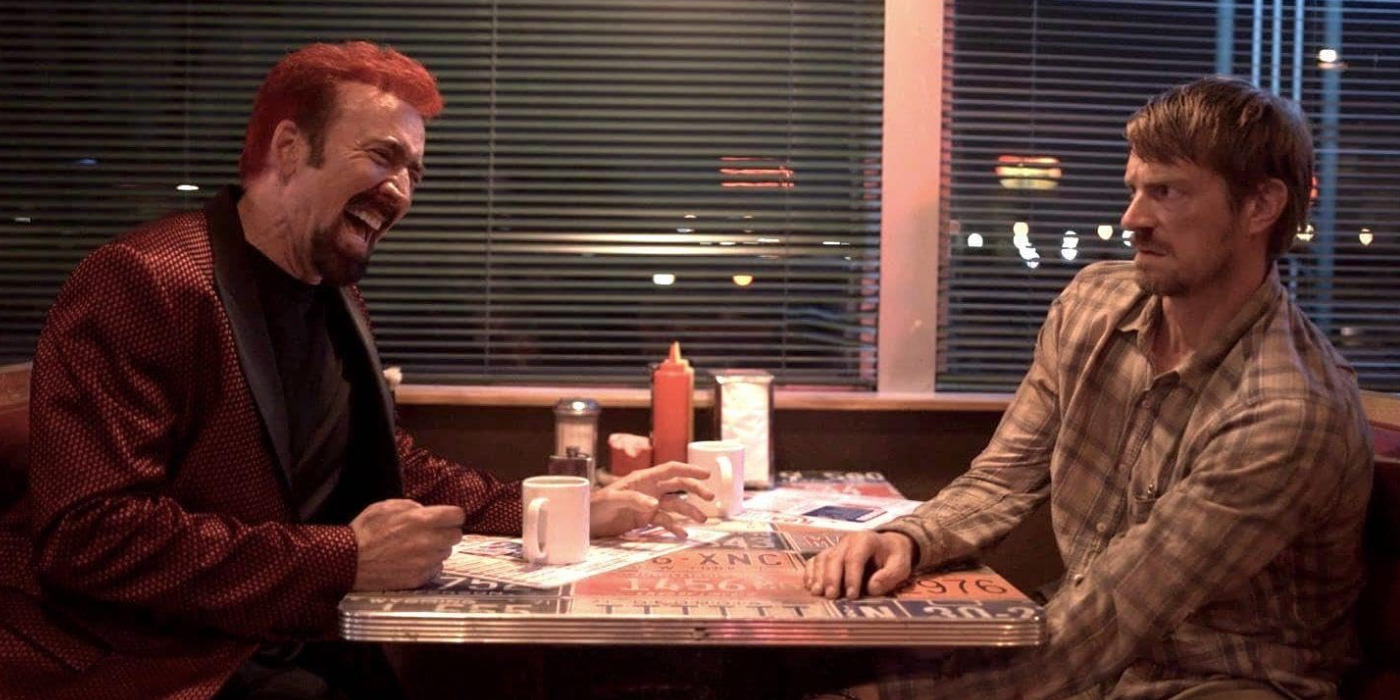
After the Passenger loses his family while working for Jacob Sullivan, he becomes thirsty for revenge on the man who ruined his life: James Levine. Therefore, the Passenger comes after David, whom he believes to be James. However, the Passenger doesn’t simply wish to kill David/James. As such, the Passenger takes David hostage instead of shooting him at the hospital parking lot.
The Passenger has been living a life of agony because of James’ actions. However, the man himself seems to have moved on with a new identity and life. The further the night progresses, the Passenger, crazed as he is, begins to realize that the man he believes to be James Levine seems to believe that he’s David Chamberlain. Therefore, the Passenger takes David hostage because he needs to bring out the man’s true colors before he makes the latter pay for his misdeeds.
Due to the same, the Passenger gets angry when David tries to find sympathy by bringing up his wife and kids, considering the passenger’s family is dead because of him. Therefore, when David continues to deny his identity as James, insisting the Passenger has the wrong guy, the Passenger ups the ante and threatens to kill several other people.
The mother-daughter duo that enters the doomed diner presents ironic symbolism for both the Passenger and David, representing what one has lost and the other has to lose. The pair gets into a physical altercation at the diner, which leads to one collateral death at the Passenger’s hand. Nonetheless, David is unable to escape his tormentor since the Passenger knows about Maggie’s location. David remains the Passenger’s hostage and the two return to the car for another ride.
Is David Really James?
Although the film keeps many things a secret until the end, David’s identity seems to be the one piece of information it provides from the start. The film opens with David and his son, with the narrative establishing David’s position as a family man early on. The Passenger’s entrance, of course, puts a question mark on the same.
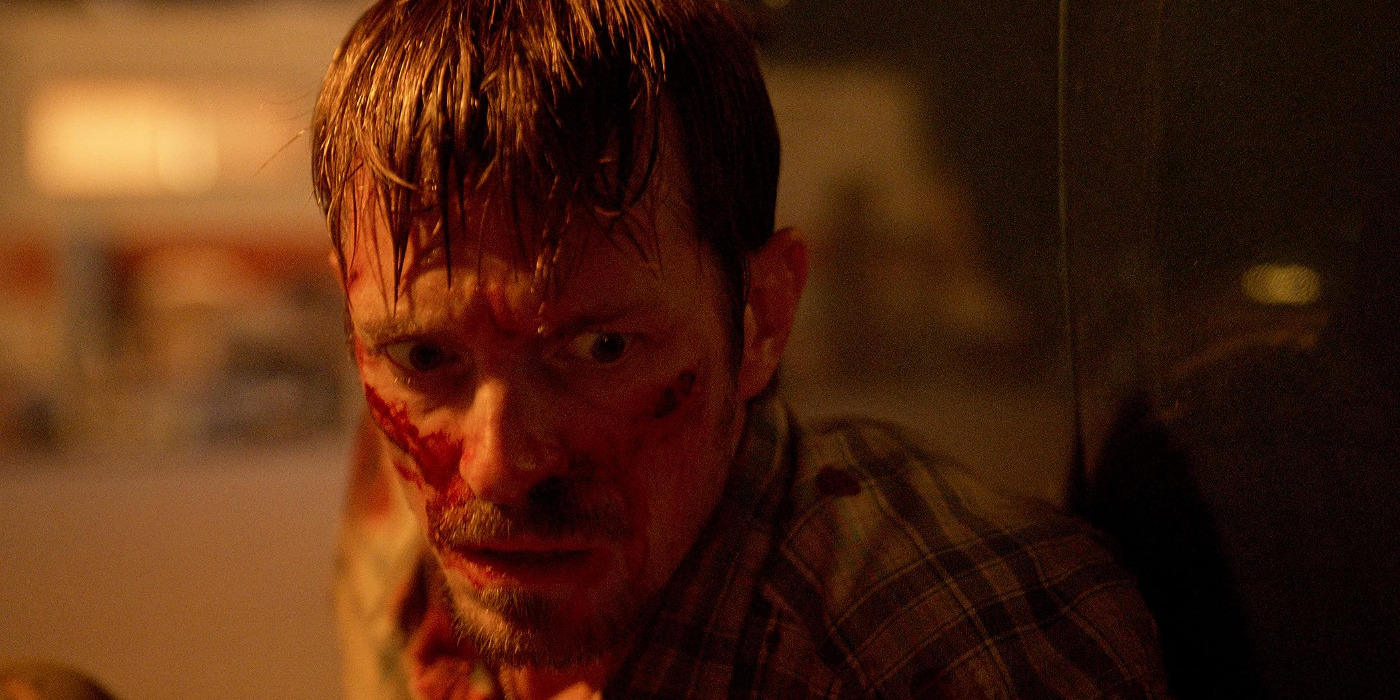
The Passenger continuously questions David’s quirks and traits, like his sobriety and ability to remain calm while facing down the barrel of a gun. Although these details would have flown under the radar, the Passenger’s attention to them portrays them in another light. As such, when the Passenger accuses David of being James Levine, it’s difficult not to believe him regardless of David’s adamant refusal.
Near the end, when David seemingly surrenders to his fate, he finally gives the Passenger what he wants. David admits to being James and tells the Passenger that Sullivan hired the hit on his family. His honesty is instantly undercut when he uses the confession as a distraction to attack the Passenger and crash the car into the middle of the road.
The crash disorients the Passenger, who remains caught under the car’s weight, bloodied and bruised. In this instance, David proves his identity as James by returning for the Passenger instead of escaping into the night. James kills the cops that follow after them and uses the opportunity to confess his sins to the Passenger.
After Sullivan gave the order, David, actually James, attacked the Passenger’s family while he was out. Although James tries to excuse his actions, claiming he never meant to kill the kid, he admits to burning the Passenger’s house down with his wife, kids, and pet rabbit litter inside.
Still, James was heavily affected by his actions and continued to waste his life, drowning in alcohol, until he met Maggie, his wife. Therefore, now James lives as David, trying to run away from his past. While it’s clear that James feels remorse over the past, he’s more invested in securing his future with his family.
To James, Maggie and his kids present a second chance— something he’s not willing to give up. As such, even now, James considers the Passenger intruding on his life as an opportunity for closure. In the end, David returns to the dark side that used to consume him when he was a hitman and chokes the Passenger with his bare hands.
After killing the Passenger, James tries to convince himself that he’s David to return to his past life. The same suggests David equipped some sort of deliberate dissociative amnesia to forget his life as James and move forward. Due to the same, the Passenger had to go to extreme lengths to get the truth out of him. Once James kills the Passenger, he returns to his life as David. He receives reassurance of his assumed identity after a call from Maggie, who shares news of their daughter’s birth.

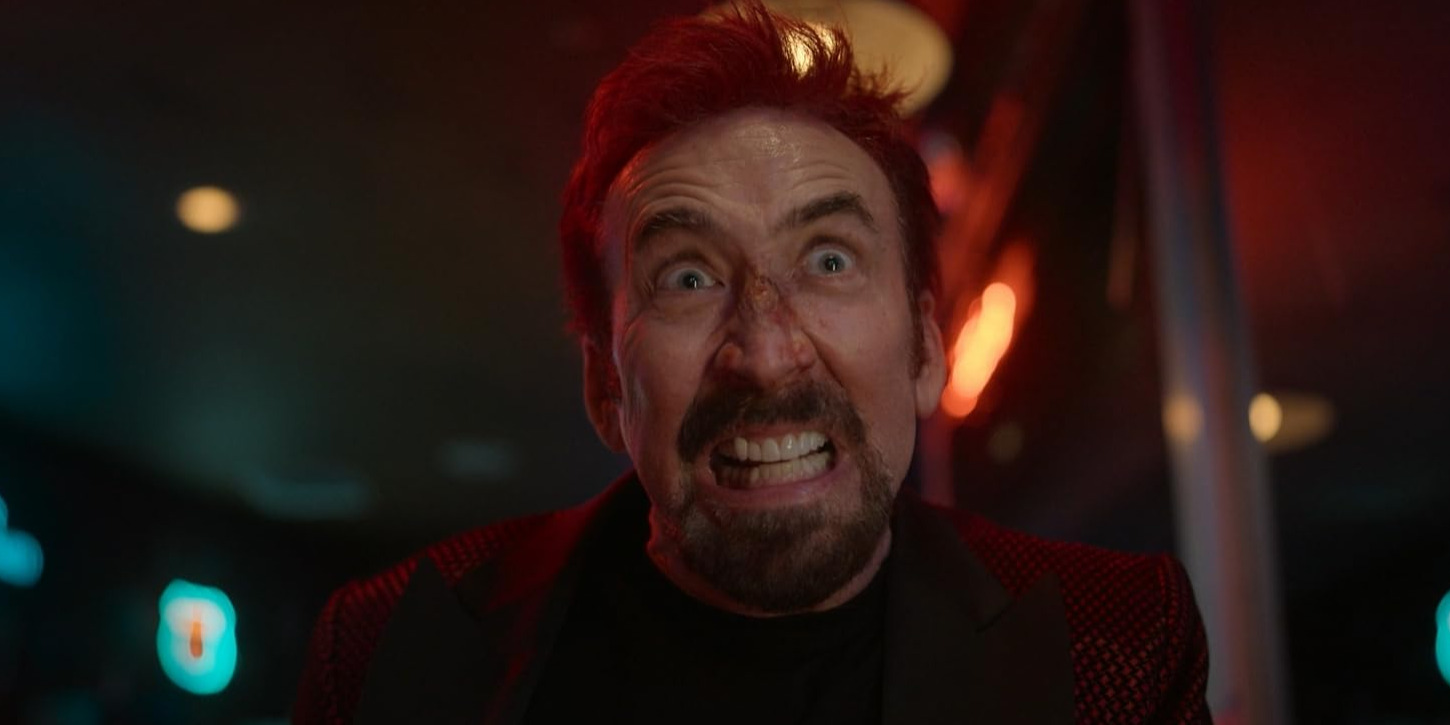
You must be logged in to post a comment.